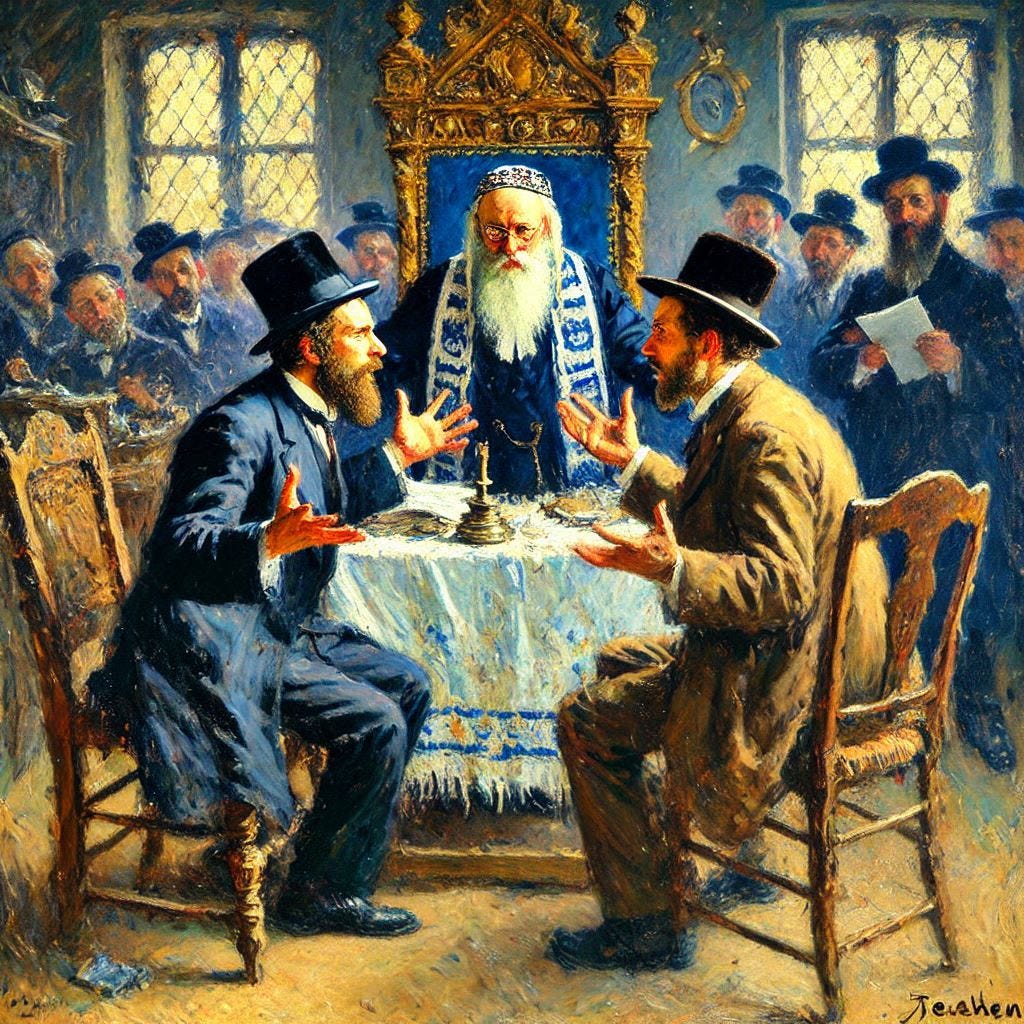וַיִּשְׂא֨וּ אֹת֤וֹ בָנָיו֙ אַ֣רְצָה כְּנַ֔עַן וַיִּקְבְּר֣וּ אֹת֔וֹ בִּמְעָרַ֖ת שְׂדֵ֣ה הַמַּכְפֵּלָ֑ה אֲשֶׁ֣ר קָנָה֩ אַבְרָהָ֨ם אֶת־הַשָּׂדֶ֜ה לַאֲחֻזַּת־קֶ֗בֶר מֵאֵ֛ת עֶפְרֹ֥ן הַחִתִּ֖י עַל־פְּנֵ֥י מַמְרֵֽא׃
His sons carried him to the land of Canaan, and buried him in the cave of the field of Machpelah, the field near Mamre, which Abraham had bought for a burial site from Ephron the Hittite.
Gimme Some Torah #634
At the end of Genesis, Jacob’s children bury him in Canaan. Shortly thereafter, Joseph dies and is buried in Egypt. Here is a story about two men who were fighting over a burial spot:
In the Lithuanian town of Ponevezh, a fight broke out between two important men of the community over a burial plot in the local cemetery. Both of the men claimed to have purchased the plot first and should therefore be buried there eventually. In the offices of the community, however, there was no document of any kind that confirmed the claim of either man.
Finally, the two men came to the Beit Din (religious court) of Rabbi Moshe Yitzḥak, the rabbi of Ponevezh (d. 1902). After both men presented their cases before the rabbi, Rabbi Moshe Yitzḥak said to them: “Because neither of you has any actual proof, I must therefore rule that the first one of you to die, may it be at the age of 120, will be the one to be buried in the grave over which you both claim ownership.”
The two men immediately accepted the rabbi’s ruling, and they stopped fighting about the burial plot. From Parpera’ot LaTorah, Menahem Becker, ed. (Jerusalem: Omen Publishers, 1983), vol. 1, pp. 224-225, translation mine.
I like this story because it shows that apparently complex problems can have simple solutions. The two men were fighting over a burial plot, but neither one had any documentation to support his claim. On the surface of things, this would appear to be a complicated issue—how can the issue be decided without proof?
Rabbi Moshe Yitzḥak’s solution, however, was beautiful and simple. He said, “The first one to die is the one who will be buried in the plot.” This put an end to the fight because neither man wanted to die first; their argument over the plot became irrelevant.
This reminds me of how my mother would prevent my brother and me from fighting over dessert. She would say, “One of you cuts the cake, the other one chooses first.” As a result, the cutter had an incentive to divide the halves evenly.
Incidentally, the conflict between Palestinians and Israelis is also a seemingly difficult problem that has a simple solution. All the Palestinians have to do is accept Israel’s right to exist. Once they do that, the rest is mere diplomacy and the war will be over.
Discussion Questions:
What other world problems seem complicated but are actually simple?
Would you have solved the case differently? If so, how?
•••




